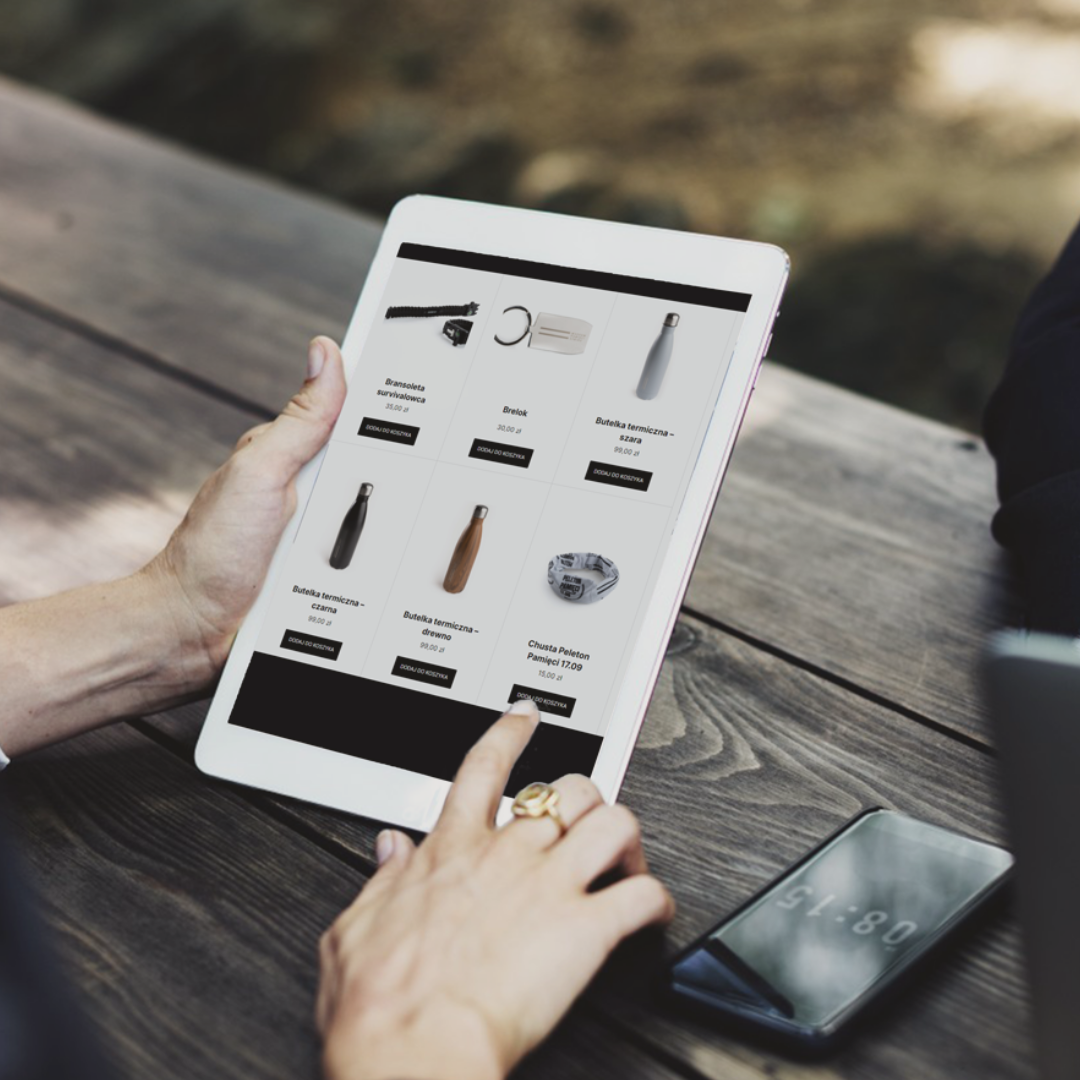Piotr Kulczyna was born in Gliwice, but his family has Borderland roots. His grandfather was a legionnaire of Marshal Piłsudski. His mother, a history teacher, had been telling him about Polish history without any distortions since his childhood. Even as a child, he knew what happened in Katyn or what labor camps were. He now passes on patriotism and respect for Polish history instilled by elders to subsequent generations and to the readers of his books. Following in Polish footsteps and honoring the victims of totalitarianism is an important element of all his expeditions, and there were many of them.
Kulczyna has been a forester in the Upper Silesian forests for forty years. He hunts, breeds dogs and horses, and also goes on long trips in his off-road car. He has been loyal to the Toyota Land Cruiser for years. This is the car, red Toyota in which he crossed the Kola Peninsula twice, ‘45’, he came to Białystok to talk about his expeditions in the Sybir Memorial Museum. The car parked in front of the building attracted the attention of passers-by.
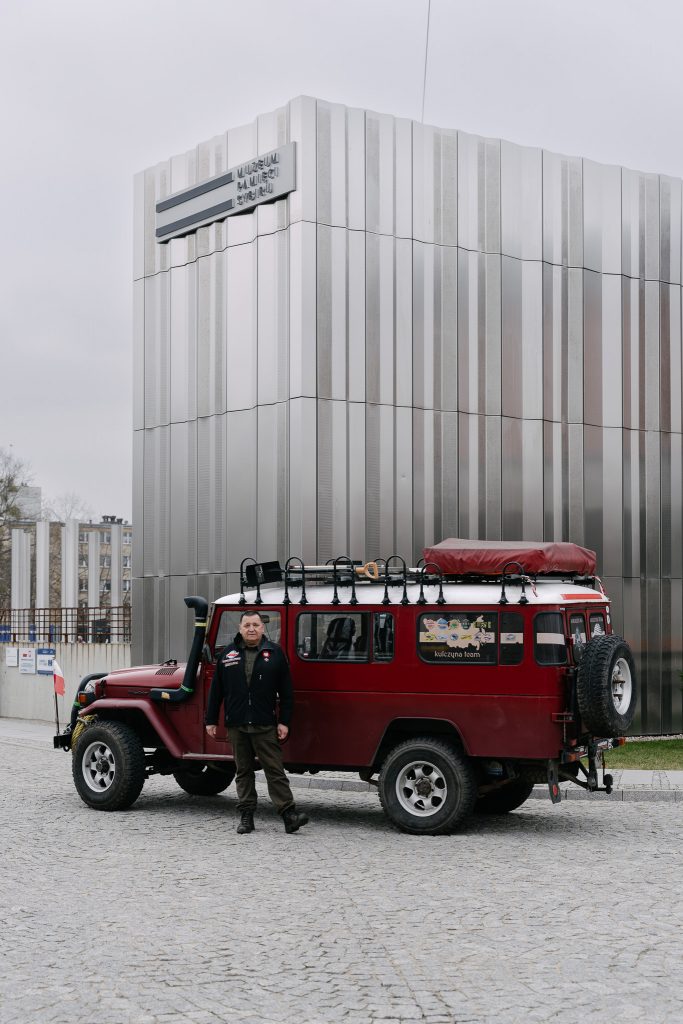
Piotr Kulczyna first went on expeditions with his sons, Paweł and Stanisław. Then with his wife’s nephew, Krzysztof. He hopes to take his granddaughters on a longer trip soon. His wife does not travel with him. — Because she doesn’t like washing in puddles — the traveler jokes.
Why did he start traveling? — Because of books — he replies. Moreover, he was attracted by the nature on the Far North. There is something intimidating about her. I often think about these great, vast spaces — he said, showing the audience photos taken during his expeditions. — Photographs do not convey that perspective or smells. And mosquitoes! — he emphasized. You can’t take a breath there without sucking in at least several tens of thousands of insects, and slapping your cheek has an effect of your whole hand getting bloody — he said.
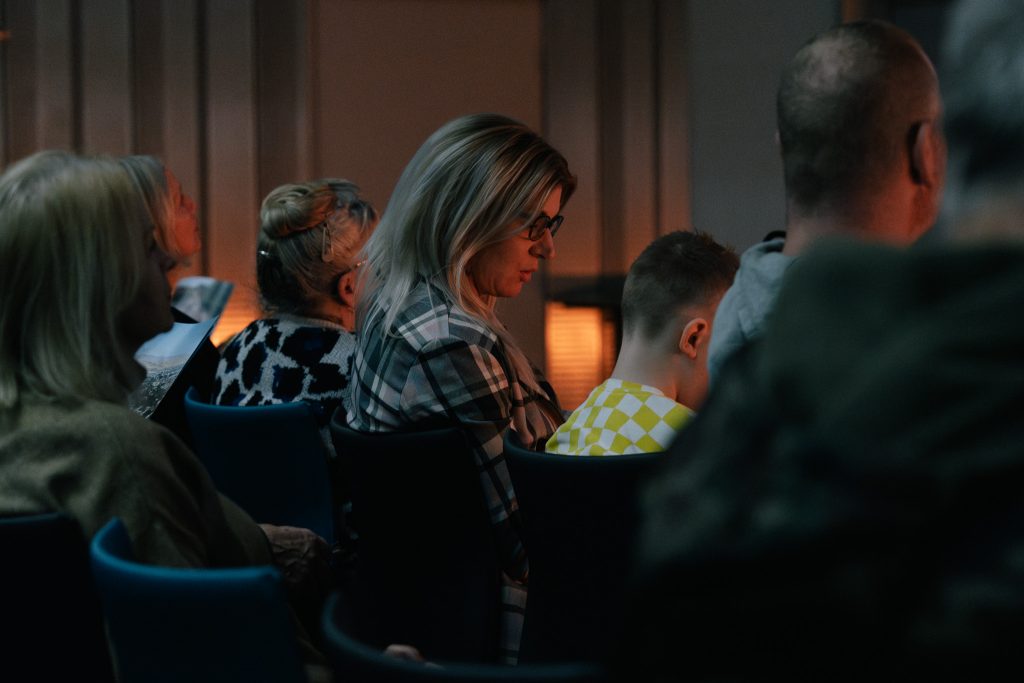
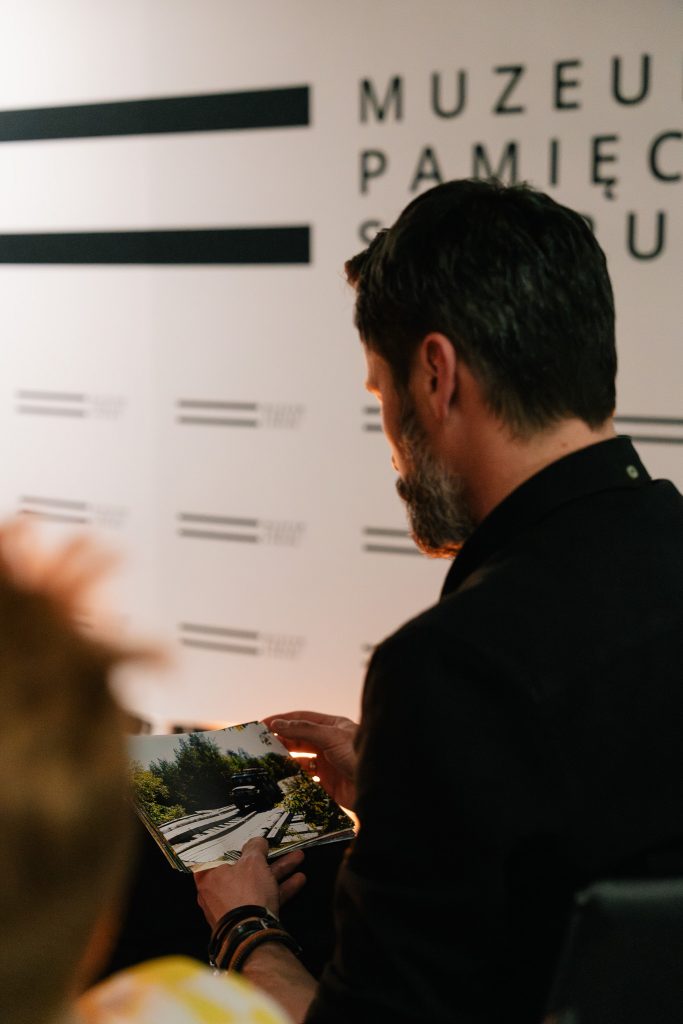
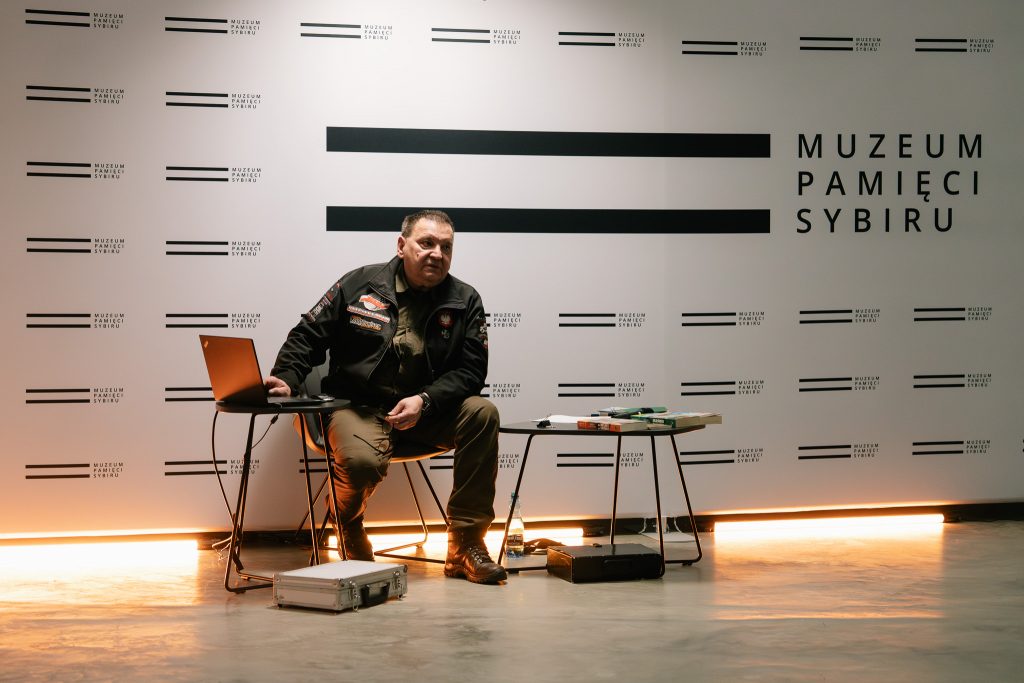
At the sight of the photos of reindeer cup lichen with huge caps of mushrooms peeking out, the audience let out a groan of delight or perhaps envy. — Even mushroom lovers can overeat them there, they fall into your hands — admitted the forester.
Kulczyna also wanted to see the traces of the Soviet system, which in the European part of the USSR resulted in megalomaniacal undertakings that cost the lives of thousands of people. The most famous is the White Sea Canal, but even further north you can still see traces of another project: the Trans-Kola Railway. — This is what it looked like — he showed the audience an archival plan — someone had drawn something on a map by hand and it had to be implemented…
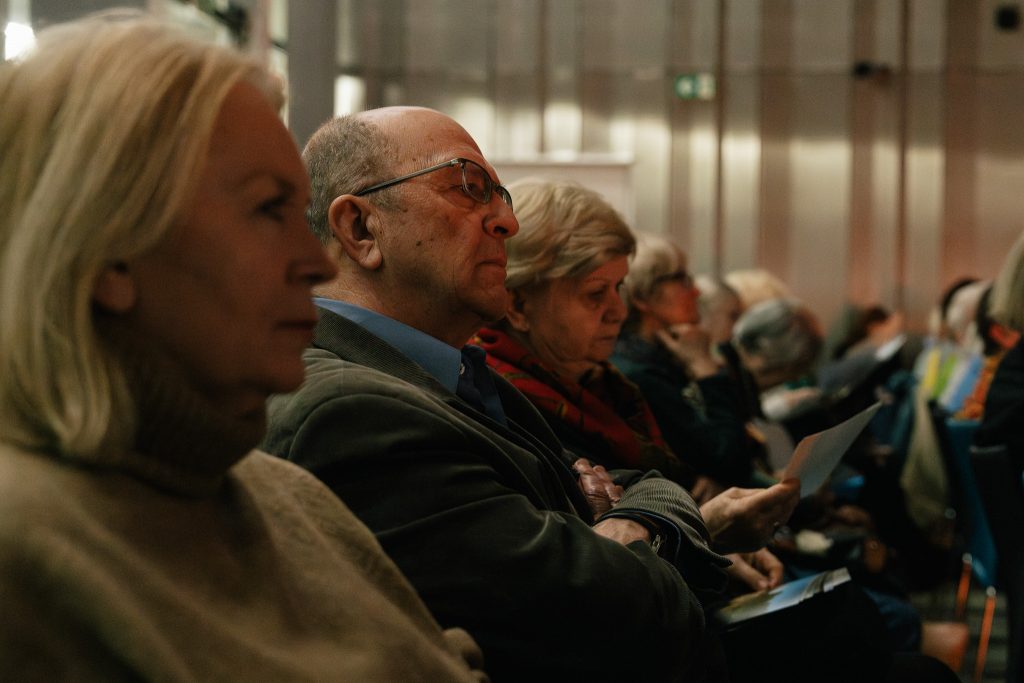
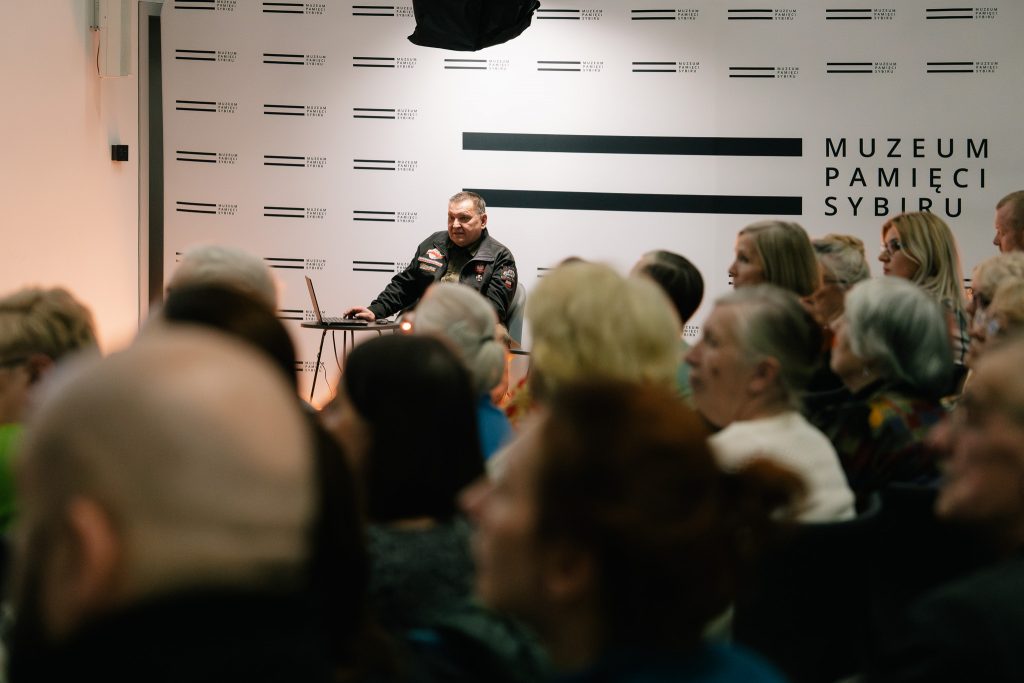
The Trans-Kola Railway, which was supposed to enable the transport of valuable aggregates from deposits on the Kola Peninsula, was built thanks to the efforts of labor camp workers. In order not to take away this slave labor, the whole network of camps was built. Thousands of people died there, and only small, disconnected sections of the tracks were built. The project was abandoned after Stalin’s death. Today, traces of this infrastructure are overgrown with vegetation, some of them are substitutes for roads.
Piotr Kulczyna showed videos of his Toyota struggling to overcome soggy embankments with the remains of grounds. Just like ‘zimniki’, i.e. wood-lined, wet trails that the locals only use in winter, when the ground freezes and becomes stable.
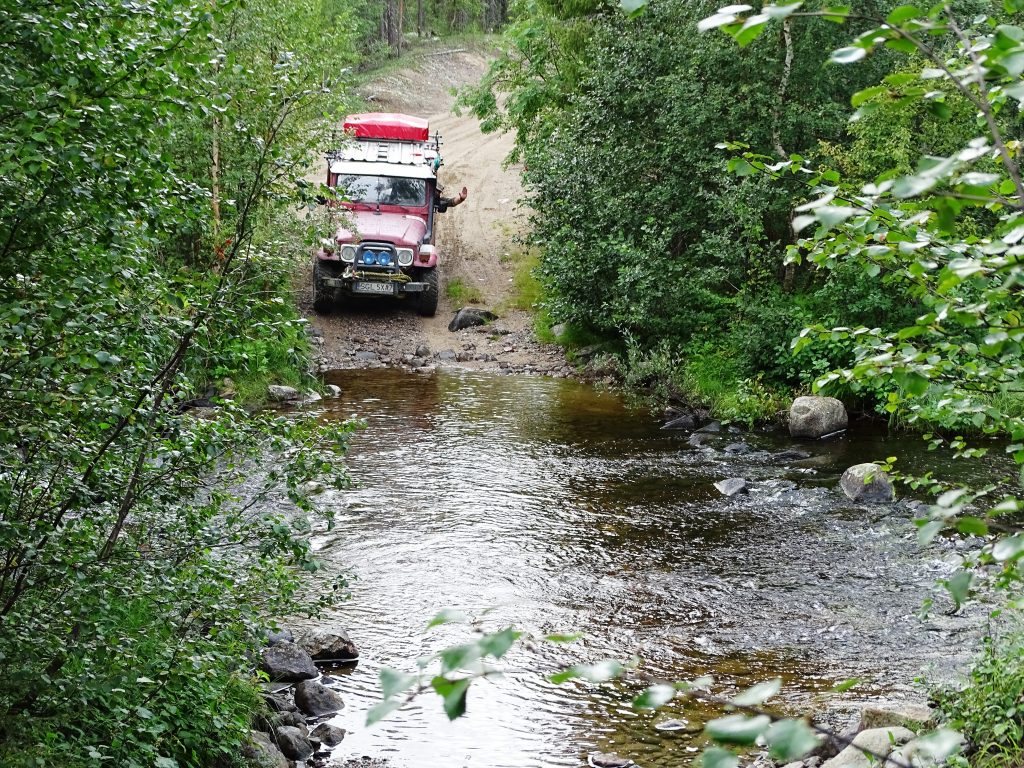
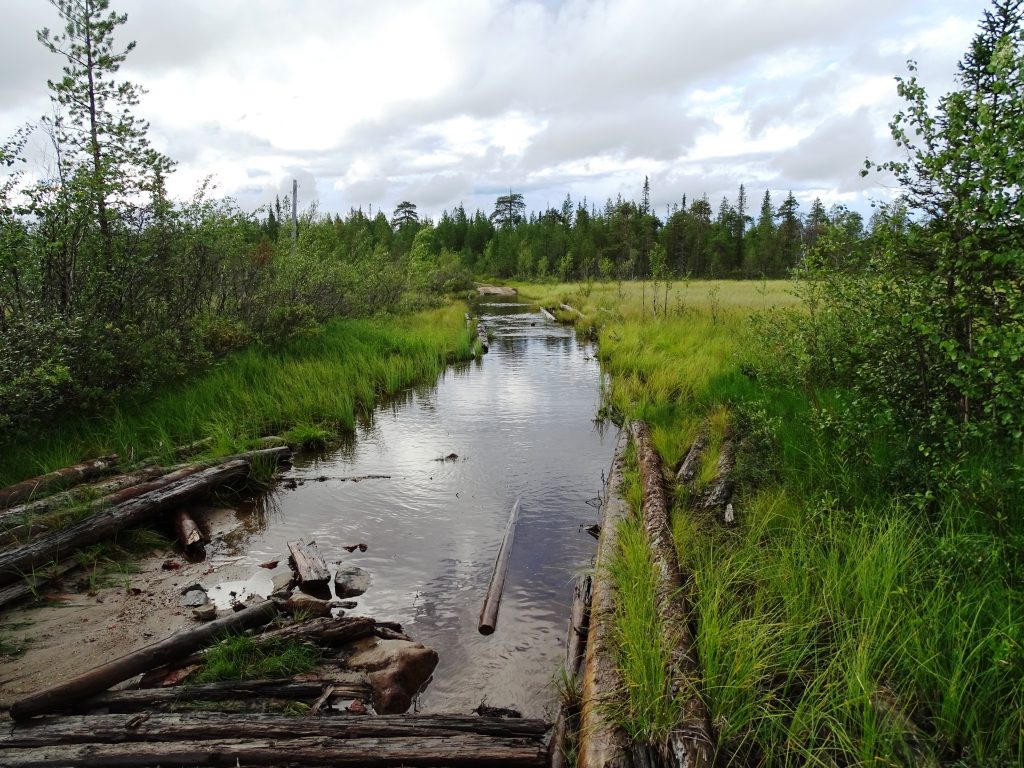
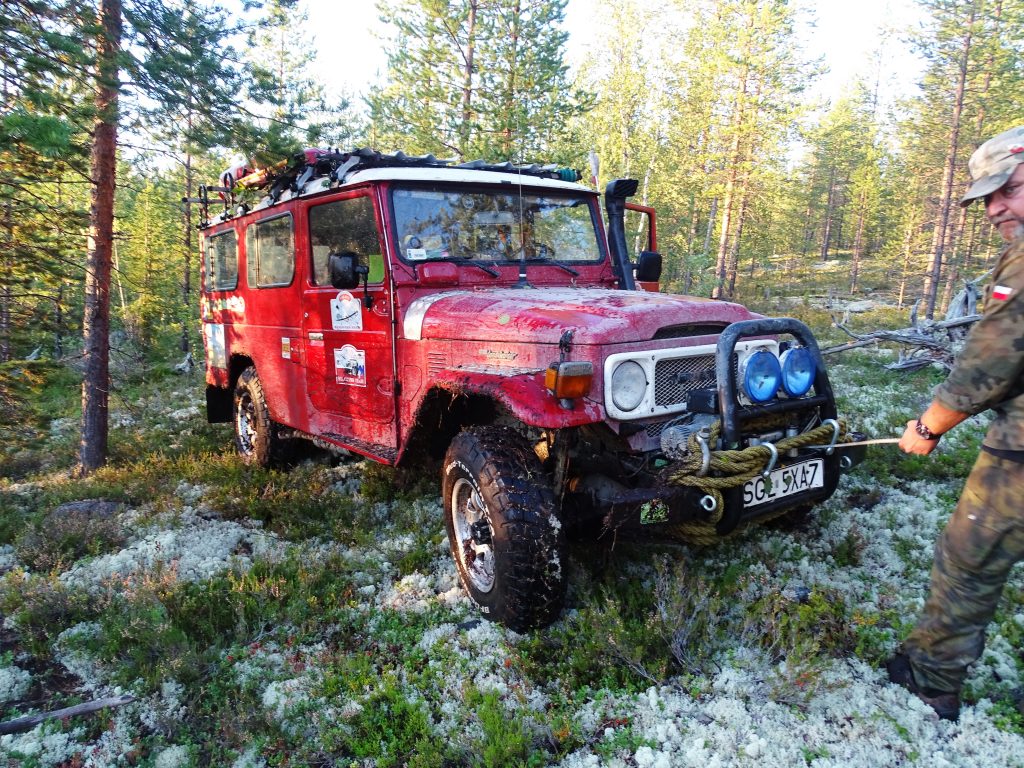
Piotr Kulczyna spoke about Russians having a lump in his throat. He talked about their hospitality and unconditional kindness that he met a dozen years ago and how much it hurts that after Russia’s aggression against Ukraine, these contacts, which had been maintained for years, were broken by his friends from the East.
— I once read such a thought in a book — he said. — ‘A Russian will be like a brother to you, he will give you his last shirt and a slice of bread until he feels freedom in you, being regardless of him, or even superiority to him. Then he will become aggressive.’
— The war that broke out in 2022 exposed in Russia what has always been there and what I see now: hatred towards other nations… — said Piotr Kulczyna sadly. — If it was possible, I would set off on another journey today. But I know that I will probably never go to Russia again in my life…





